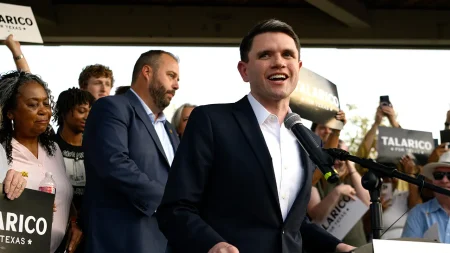Paragraph 1: A New Tranche of Aid Amidst Transition:
The Biden administration has authorized a new military aid package for Ukraine, totaling $500 million. This announcement comes mere weeks before President-elect Trump assumes office, injecting further uncertainty into the future of U.S. support for Ukraine’s defense against Russia’s ongoing aggression. Secretary of State Antony Blinken emphasized the urgency of the aid, stating that the package is designed to provide Ukraine with critical weapons and equipment necessary to withstand the continuing Russian attacks. This latest commitment follows a larger $988 million aid package announced earlier in the week, underscoring the Biden administration’s continuing commitment to bolstering Ukraine’s defensive capabilities. The timing of the announcement, however, raises significant questions given the impending change in administration and President-elect Trump’s previously expressed skepticism about the extent of U.S. involvement in the conflict.
Paragraph 2: The Contents of the Aid Package:
The $500 million package includes a variety of military equipment designed to address Ukraine’s immediate needs on the battlefield. Key components include drones, which provide valuable reconnaissance and targeting capabilities; High Mobility Artillery Rocket Systems (HIMARS) and accompanying ammunition, offering Ukraine increased firepower and range; armored vehicles to enhance troop mobility and protection; and essential nuclear, chemical, and radiological protective equipment to safeguard Ukrainian forces against potential threats. These items represent a mix of offensive and defensive capabilities, reflecting the ongoing nature of the conflict and the need for Ukraine to both repel Russian attacks and conduct counter-offensive operations.
Paragraph 3: Trump’s Stance and Its Implications:
President-elect Trump’s previous statements regarding the war in Ukraine have created considerable apprehension about the future trajectory of U.S. support. During his campaign, Trump voiced criticism of the Biden administration’s substantial aid to Ukraine and vowed to swiftly bring an end to the conflict upon taking office. These pronouncements, coupled with Vice President-elect JD Vance’s suggestion that Ukraine cede territory to Russia, have fueled concerns among Ukrainian officials and international observers. The uncertainty surrounding Trump’s approach to the conflict casts a long shadow over Ukraine’s long-term defense planning and raises questions about the stability of Western support.
Paragraph 4: Zelenskyy’s Concerns and the Meeting in Paris:
Ukrainian President Volodymyr Zelenskyy has expressed deep concerns about the potential consequences of diminishing U.S. support and the importance of maintaining unity in the face of Russian aggression. He has publicly rejected proposals involving territorial concessions to Russia, emphasizing the need for a just and lasting peace based on the principles of sovereignty and territorial integrity. The recent meeting between Trump and Zelenskyy in Paris provided an opportunity for direct dialogue amidst this backdrop of uncertainty. While the specific details of their discussions remain undisclosed, the meeting likely focused on the ongoing conflict and the future of U.S.-Ukraine relations under the Trump administration.
Paragraph 5: The Challenges Ahead:
The transition of power in the United States presents significant challenges for Ukraine. While the Biden administration’s recent aid package provides immediate assistance, the long-term commitment of the U.S. remains uncertain. President-elect Trump’s stated intention to prioritize a swift resolution to the conflict, potentially involving negotiations with Russia, raises concerns about the terms of any potential settlement and the implications for Ukraine’s sovereignty. The incoming administration will need to carefully consider the complex geopolitical dynamics at play and the potential consequences of any significant shift in U.S. policy towards the conflict.
Paragraph 6: The Broader Geopolitical Context:
The war in Ukraine has profound implications for the broader geopolitical landscape. It represents a direct challenge to the post-Cold War order and the principles of national sovereignty and territorial integrity. The outcome of the conflict will have significant ramifications for the future of Europe and the global balance of power. The United States plays a critical role in supporting Ukraine’s defense and coordinating international efforts to address the crisis. The incoming administration’s approach to the conflict will shape not only the future of Ukraine but also the broader international response to Russian aggression and the evolving security architecture of Europe.















